As the offseason comes to a close, so does our offseason game plan series. In the fifth and final edition – and perhaps the most difficult one to write – we will take a critical look at the Maple Leafs coaching staff.
To date, we have discussed:
The Leafs have made a few predictable moves that we discussed in previous editions: adding more draft picks, signing unqualified restricted free agents to cheap prove-it contracts (Nicolas Aube-Kubel and Ilya Samsonov were two players we mentioned specifically), and choosing not to trade any of their top players (the assumption being there weren’t deals on the table that would’ve improved the team). While they didn’t make one move of note to upgrade the top of the roster, they did add Calle Jarnkrok on a four-year contract – even if it’s for a relatively small AAV – presumably because they think he can be more than simply a decent depth option (which is quite the bet at 31 years old).
It has been a largely status quo offseason for the franchise, with perhaps a slight downgrade at forward by subtracting Ilya Mikheyev and Ondrej Kase (who did play 50 games last season). They plan to hope a young player like Nick Robertson emerges, roll the dice on two wildcard goalies while betting that they can improve on the Leafs’ 27th-ranked 5v5 save percentage from last season, and maintain continuity with their deep defense (while hoping that Jake Muzzin remains healthy enough to rebound at the tender age of 33).
There has been no big or sexy move to this point, making this an easy group to feel aloof about given their lack of playoff success. But this Leafs team finished fourth overall in the league last season. This is a legitimate top-flight club in the NHL. Any claim that a rival like the Ottawa Senators has suddenly closed the 42-point gap between the two teams last season seems far-fetched unless the Leafs spiral into a shocking freefall.
As part of the status-quote summer for the Leafs, the coaching staff has remained intact across the board. The team will need to have playoff success next season to prove this is the correct decision. While the regular season results have been unquestionably strong, it goes without saying that playoff success will need to follow.
Sheldon Keefe’s tenure to date
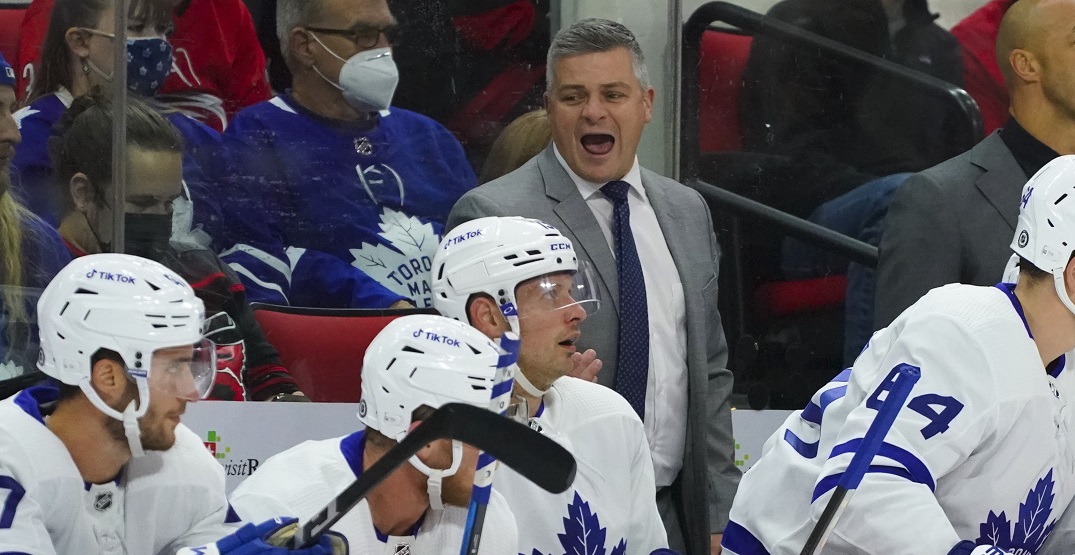
Through three postseason “runs,” the elusive playoff series victory has yet to come. We aren’t going to revisit each series in detail, but the story to this point is worth remembering.
In the first playoff series against Columbus – coming following a COVID delay after Sheldon Keefe took over mid-season – the decision to neuter the team’s depth by loading up the top line backfired. Ushering in Nick Robertson – who has not stuck with the NHL club since – was peculiar. So was throwing a rather ineffective Andreas Johnsson into the series-deciding game coming off of a surgery that knocked him out of game action for months. It was a tough first playoff showing for Keefe, but it came during an unprecedented time in our history, let alone in the league.
While the following season was also unprecedented – a 56-game schedule inside the Canadian division – it was set up on a platter for the Leafs. They cruised through the regular season, and while John Tavares was forced out of the series early due to injury, they still built a 3-1 lead before completely falling apart. Keefe changed a winning roster in Game 5 for seemingly no reason. Auston Matthews and Mitch Marner were shutdown, the top line played huge minutes, and no adjustments really came. The power play was awful for the second straight playoffs. It was a tough look all around for the coaching staff.
That brings us to the 2021-22 campaign – a strong regular season across the board for the Leafs. Not only did they finish fourth overall, but they were second in the league in goals per game, owned the best power play in the league, ranked eighth on the penalty kill, and their defensive metrics (something the coaching staff can influence) were strong. The goals against numbers were generally sunk by poor netminding (which the coach has little control over).
In terms of the regular-season coaching, most of the criticism amounts to nitpicking. The team has been successful, they are organized, and their special teams perform well. When they were firmly in a playoff spot, Keefe experimented with his line combinations as well. The top players also saw their ice time reduced last season after overloading them with every they could handle (and more) in previous seasons.
When a player slumps, Keefe typically rides the percentages and generally gives him every opportunity to succeed (see: Ritchie, Nick). The Leafs head coach’s interviews are almost boring, but that’s a positive in this market in that they rarely make waves. There has been little in the way of controversies or off-ice distractions during Keefe’s tenure, which is not nothing in this market. It’s easy to gloss over it when everything is kept in-check, but this market can snowball on a coach. He has mostly managed the media quite well, which is particularly impressive from a green NHL head coach.
The playoffs were not perfect this past Spring, but how much of it was really on the coaching staff? They went toe-to-toe with a borderline dynasty and lost 2-1 in Game 7. The team generally played well. Keefe rode the lines as much as he possibly could, and the matchups were fine.
Eventually, the Leafs’ top players need to step up in series-deciding games – there is only so much a coach can do. Some important depth players basically providing nothing in the playoffs is out of the coach’s control, too; they either have it or they don’t, and the coach can only play the hand he’s dealt.
At the same time, a few concerning themes have lingered. The power play has gone downhill in the final month or two of each season before clicking at the following rates in the playoffs:
- 15.4% vs. Columbus
- 13% vs. Montreal
- 14.3% vs. Tampa Bay
It’s not a coincidence at this point. The power play has gone static and become trigger-shy each playoff season. There have been personnel issues at times – a trigger-shy Mitch Marner lapping up the half-wall; the first unit flashing success with Mark Giordano at the top – even scoring with him there! – only to never see him on PP1 again; even using John Tavares – an elite goal scorer – as only a net-front presence, just to name a few.
Maybe Keefe didn’t need to adjust and the top players simply needed to step up, but at the same time, there haven’t been too many adjustments of note in the lines, especially when they aren’t working or producing much of anything. In-game, it’s basically set it and forget it.
With all of that said, what do we make of the coaching staff? Do we trust the roughly 67 games of elite power-play production or the roughly 23 games down the stretch (including playoffs) where the production fell off yet again for the third straight season? In his season-ending press conference, Sheldon Keefe was asked (credit to TSN’s Mark Masters) about the power play’s struggles:
“Obviously, the opponent has a say in it, both in their structure and the unit they put together, how they play against you, and the goaltender, ultimately. But there are some process-related things in there that we will continue to look at. We are certainly not content with where we were even in the regular season — and certainly, in the playoffs, we needed to be better.”
The tough part is that it’s the third straight season where their playoff opponent has been able to successfully make adjustments over the playoff series while the Leafs weren’t able to successfully counter-adjust.
Now, the Leafs weren’t going to fire their coach over the power play alone. Coaching aside, you would half expect the Leafs’ best five power-play players to figure it out on their own.
They could fire a coach over three straight first-round eliminations. It would be fairly reasonable, and in most markets, teams would not bat an eye at that decision. Bruce Boudreau was afforded four playoff runs, but they won two playoff series in that time. He was fired 22 games into his fifth season.
Sheldon Keefe’s remaining rope
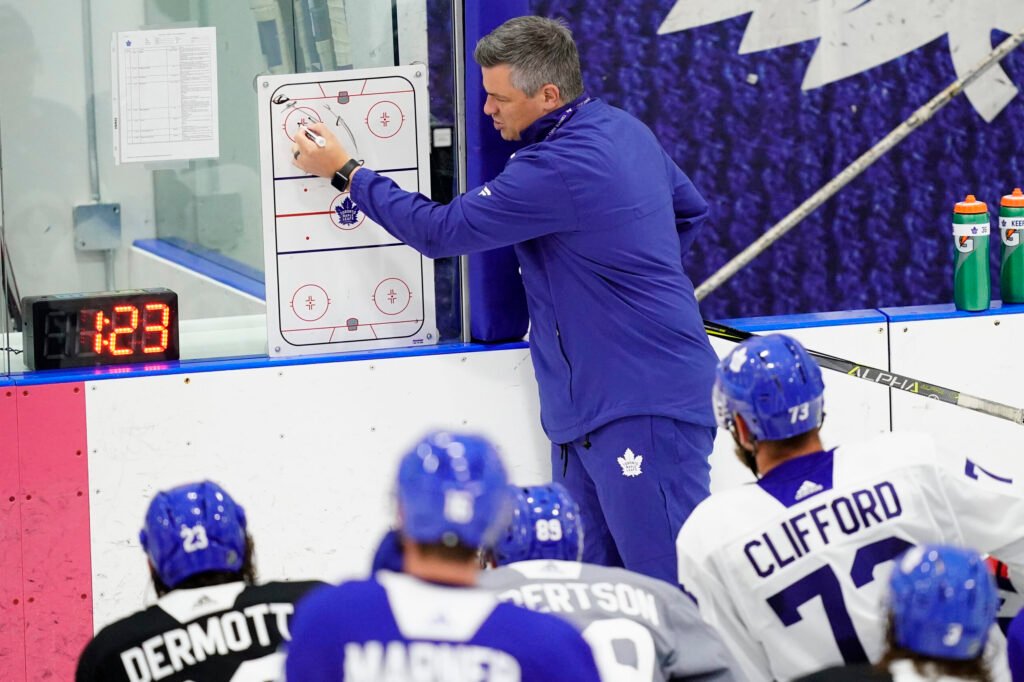
In Kyle Dubas’ end-of-season press conference, the Leafs GM mentioned that the easy thing to do would be to make bold changes. I’d argue the opposite at this point. The easy thing to do is to not shake the boat or roll the dice on making a change that could push the team over the top. Running back a strong regular season team that has looked good in one of the last three playoffs is the easiest possible thing to do. It requires almost no work.
Dubas cleared some cap space, made some changes on the periphery, and gambled on goaltending. A bold move would be the far more difficult thing to do. Bold is not to be confused with dumb – there seems to be the notion in this market that if the Leafs make a big move, it will automatically be a lost trade. It’s certainly possible, but it’s not even remotely a certainty.
Making a move and betting on a change that potentially changes the complexion of the team is far more difficult to do than simply running it back. A learning curve would be required, and they would be questioned during the season. Running it back pretty well ensures 82 risk-free games. It’s a virtual certainty the team will be good in the regular season.
At this point, it’s fair to bring Keefe back to start this upcoming season. He has an excellent record and has been one of the most successful regular season coaches in Leafs history so far. The playoffs were not successful, but the team did not show poorly. It’s a low bar, but at this juncture, it is enough to start the season with Keefe and see how it goes, which is what they did with Mike Babcock after three straight first-round exits.
It’s noteworthy that Keefe has two more years left on his contract, and the organization is still paying Babcock until next summer. Sure, MLSE more or less prints money, but business is still business. Coaches are realistically hired to get fired – they are always on the clock – but the time to do it would likely be when they are no longer paying Babcock and Keefe is entering his final year. At that time, we’ll know whether he’s had any playoff success through four opportunities (whether Kyle Dubas would actually pull the trigger is a whole other story in and of itself).
The Leafs did add to their coaching staff last season by hiring Dean Chynoweth, who did a great job building the penalty kill and working through shaky goaltending. He managed a defense that included a largely injured and ineffective Jake Muzzin, two kids playing notable minutes, and Justin Holl’s inconsistency. Still, the defense generally persevered and was far from an issue by the end of the season, as shown in their strong underlying numbers. The penalty kill was generally not an issue, either. It should be recognized that Keefe’s AC hire did an excellent job last season.
While the Leafs have lost Ilya Mikheyev and Ondrej Kase moving forward, they ranked third and fourth among Leafs forwards in shorthanded time on ice per game. The top three forwards there are returning (Marner, Kerfoot and Kampf); it’s not a big loss, and they’ve added some grinders who can make up the minutes. The team is returning their entire defense and main penalty killers. The continuity moving forward – along with the obvious talent levels here – are genuine reasons for optimism.
One could argue they could learn from the Chynoweth addition and hire an experienced power play coach. They would likely argue it was ranked number one in the league under Spencer Carbery, so why mess with a good thing? Again, the easiest thing to do is to return everyone – and there are tangible results to lean on. But how much of it was coaching versus trotting out four elite players? How much was coaching to blame for the failure to adjust down the stretch and in the playoffs yet again? Only the Leafs have the internal view of that.
We can debate until our faces turn blue whether the coaching staff deserves to return or not. There is a fair argument for bringing them back as the most logical move. They likely aren’t a losing streak away from getting fired, either. They will have to continue to prove themselves through the regular season and will almost certainly need playoff success this season to return next year, but there are a lot of coaching staffs around the league for whom we could say the same.


![Jim Montgomery Post Game, Bruins 4 vs. Leafs 2: “[Marchand] still manages to get under people’s skin, yet he doesn’t cross the line” Jim Montgomery, Boston Bruins post game](https://mapleleafshotstove.com/wp-content/uploads/2024/04/jim-monty-pg-to-218x150.jpg)
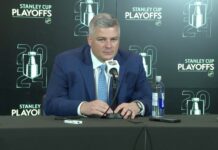

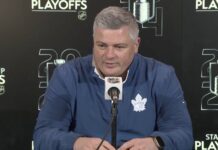







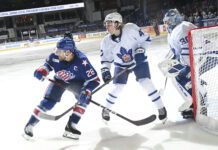











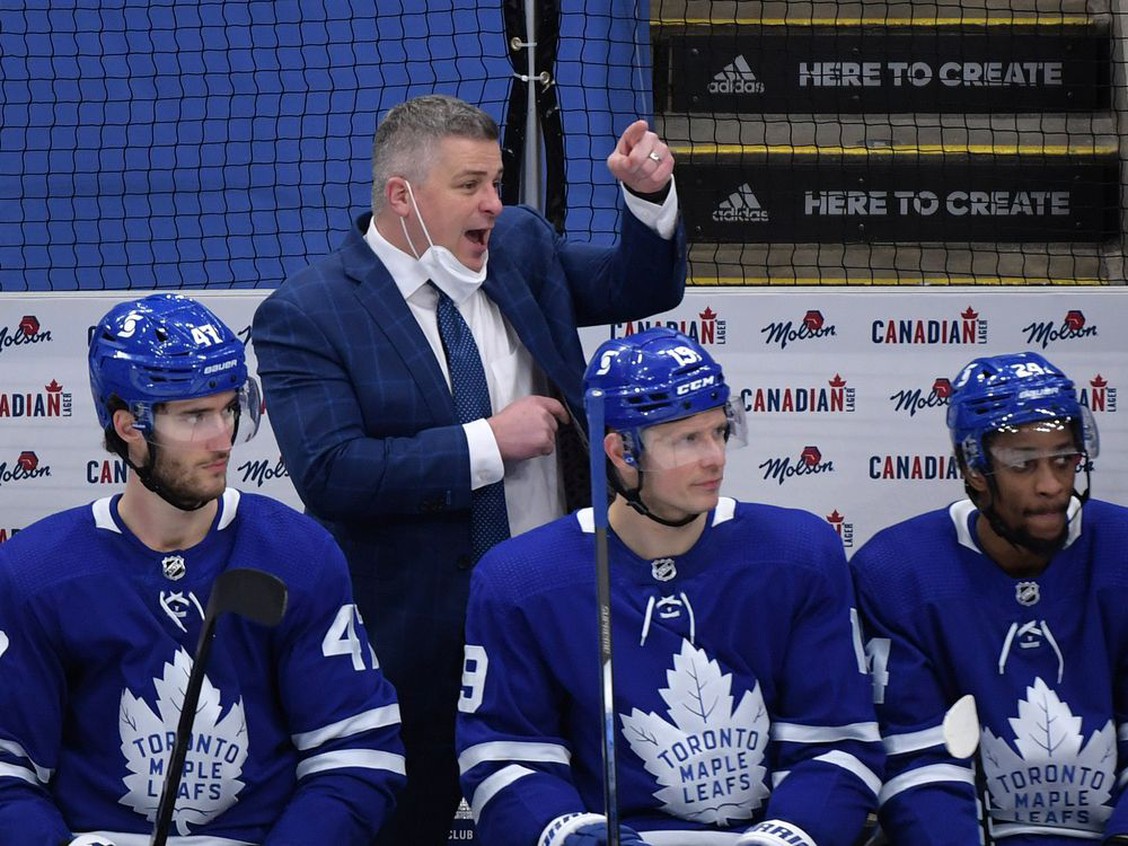

![Jim Montgomery Post Game, Bruins 4 vs. Leafs 2: “[Marchand] still manages to get under people’s skin, yet he doesn’t cross the line” Jim Montgomery, Boston Bruins post game](https://mapleleafshotstove.com/wp-content/uploads/2024/04/jim-monty-pg-to-100x70.jpg)







